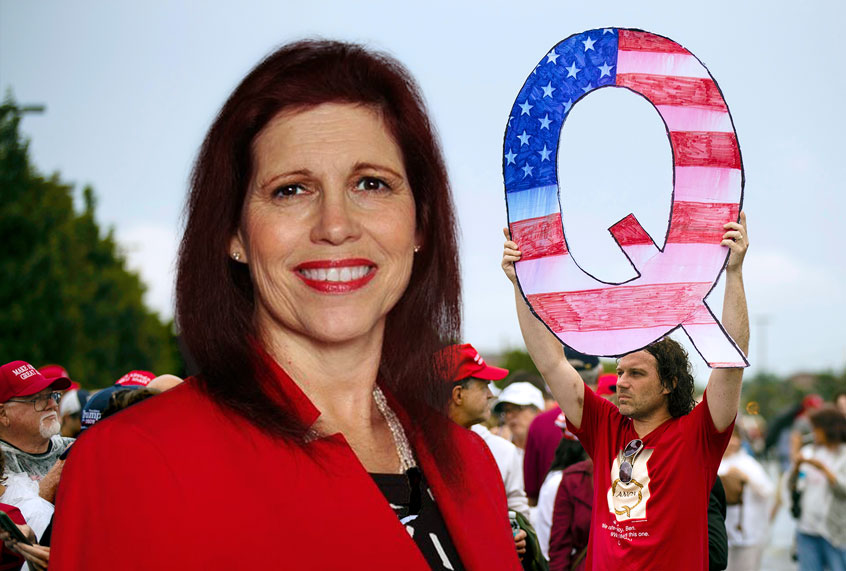This week in Oregon, Republican primary voters picked a major extremist to run against incumbent Democratic Sen. Jeff Merkley in the general election: Jo Rae Perkins, who is an avowed believer in the QAnon conspiracy theory. Perkins won by almost 20%, which was certainly decisive — and given how much of a blue state Oregon is, pundits are predicting that Merkley will enjoy a landslide victory over Perkins in November.
Despite the fact that this choice is likely to be a huge electoral blunder, we can’t totally disregard the QAnon believers. Those who embrace the QAnon cult are quite serious about it — as serious as evangelical Christian fundamentalists are about their faith, according to libertarian journalist Bonnie Kristian.
The QAnon theory claims that Donald Trump became president in order to combat a worldwide sex trafficking ring that includes Hillary Clinton and other prominent Democrats — and a mysterious figure named Q is giving them information and updates about their cause. During her victory speech, Perkins specifically mentioned Q and told supporters, “I stand with President Trump, I stand with Q and the team. Thank you, Anons. Thank you patriots.” And she referenced the QAnon slogan, “Where we go one, we go all.”
Kristian, in an op-ed for The Week, explains that while QAnon devotees are far from mainstream, they have a fundamentalist-like devotion to their cause. And she notes that QAnon’s “narrative centers on a cabal of powerful figures in government, business, academia and media who make time for child sex trafficking and satanic sacrifice in their busy schedule of world domination.” Q, she adds, is “the movement’s anonymous digital prophet.”
Although QAnon isn’t known for being a religious movement per se, The Atlantic’s Adrienne LaFrance has reported on QAnon-minded churches being developed. And Kristian predicts that QAnon will grow as a religious sect.
“The church of QAnon may be a portent of things to come,” Kristian writes. “Traditional religiosity is declining in America, but humanity will not cease to be religious. It will merely diversify its sources of increasingly customized religiosity. From lapsed evangelicals, as many QAnon adherents seem to be, to religiously unaffiliated ‘nones,’ people crave the community, meaning and purpose church provides — even if they abandon or reject its teachings.”
Kristian notes the similarities between QAnon’s views and the views of end-time Christian fundamentalists, who have an obsession with the apocalypse.
“QAnon builds on apocalyptic thinking common in parts of evangelical and fundamentalist Christianity in America,” Kristian explains. “Q drops frequently include Bible passages, and the style of study of scripture and Q texts employed — the careful search for hidden prophetic meaning and correspondence to history and current events — is very much a creature of the religious right.”


